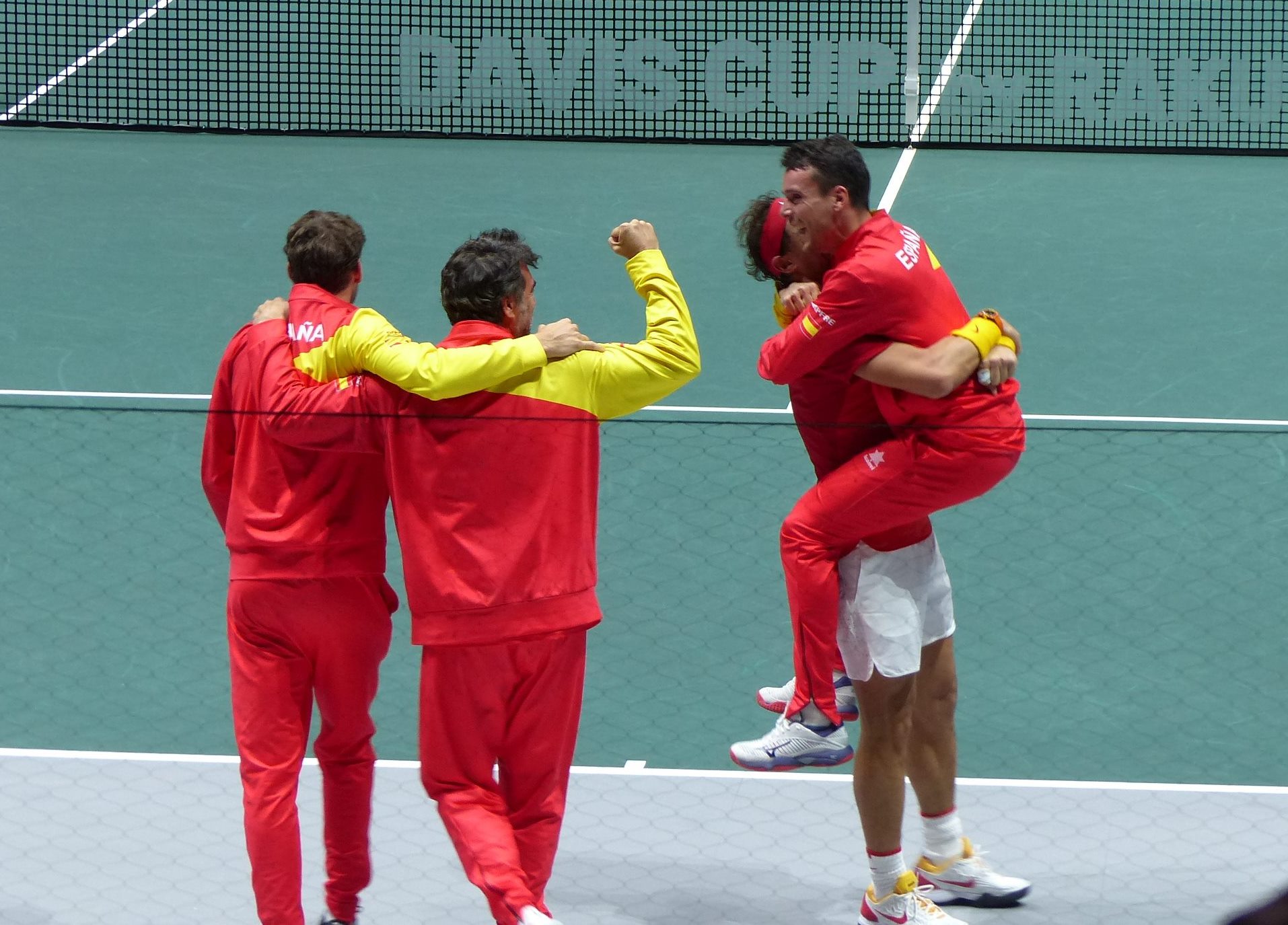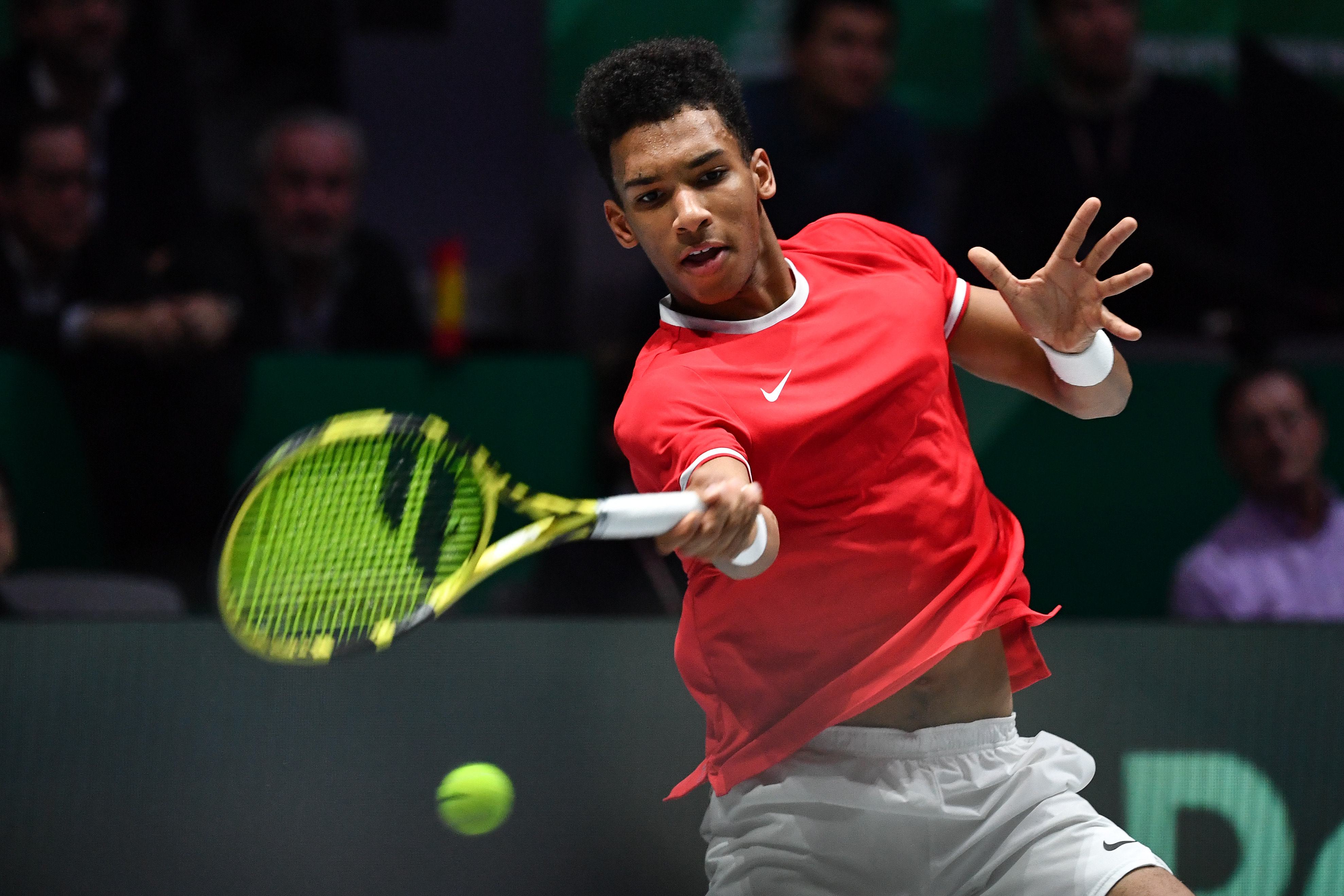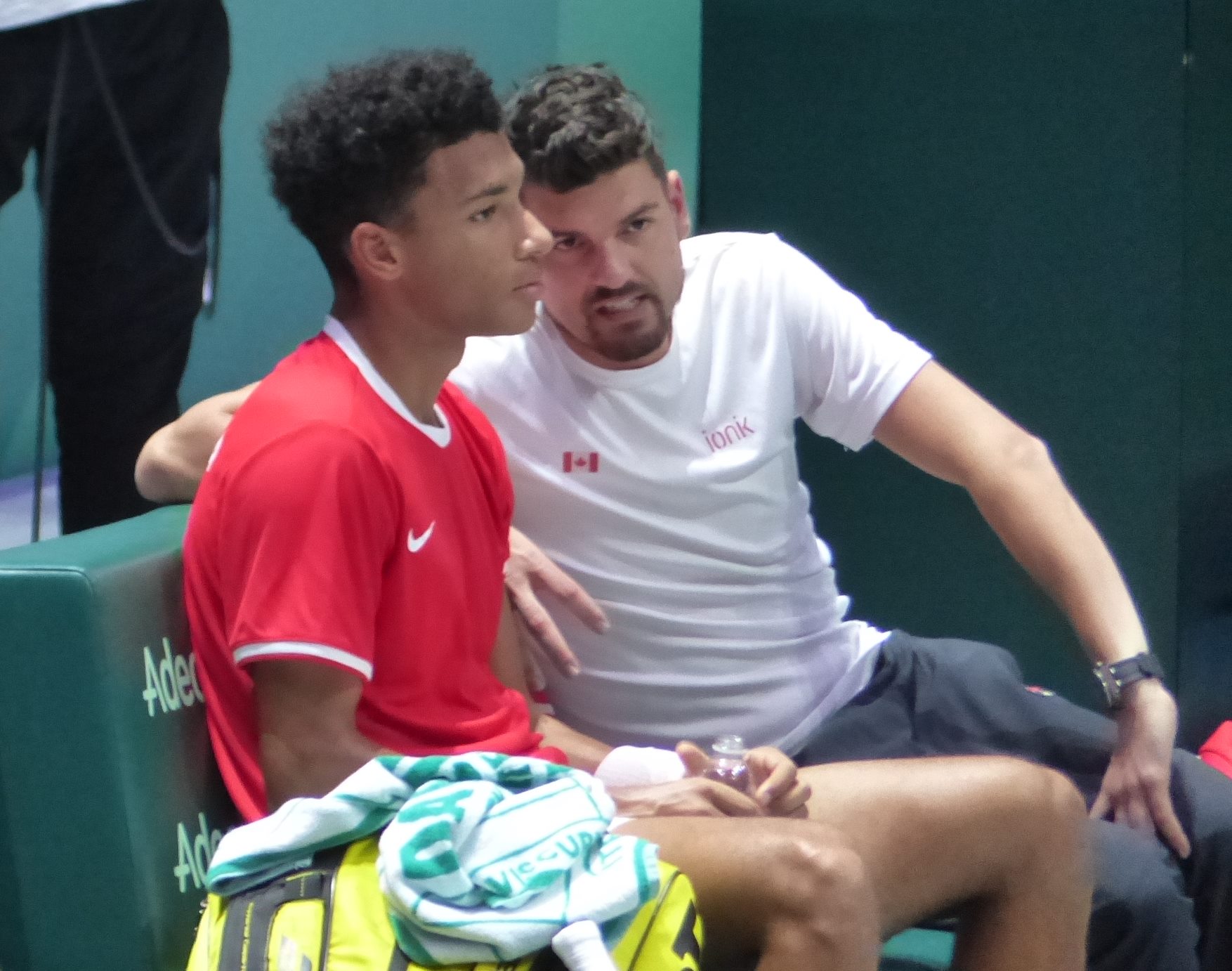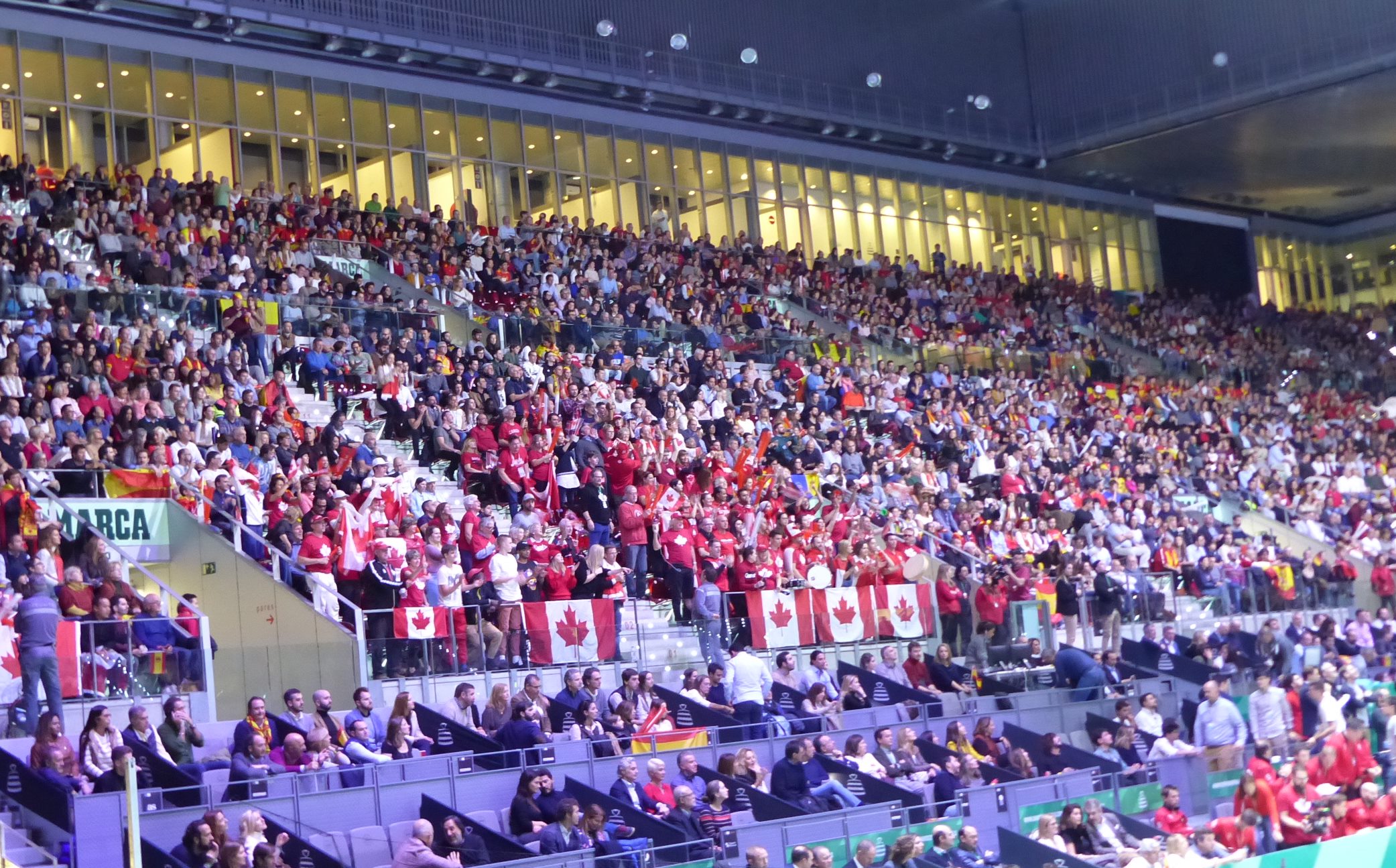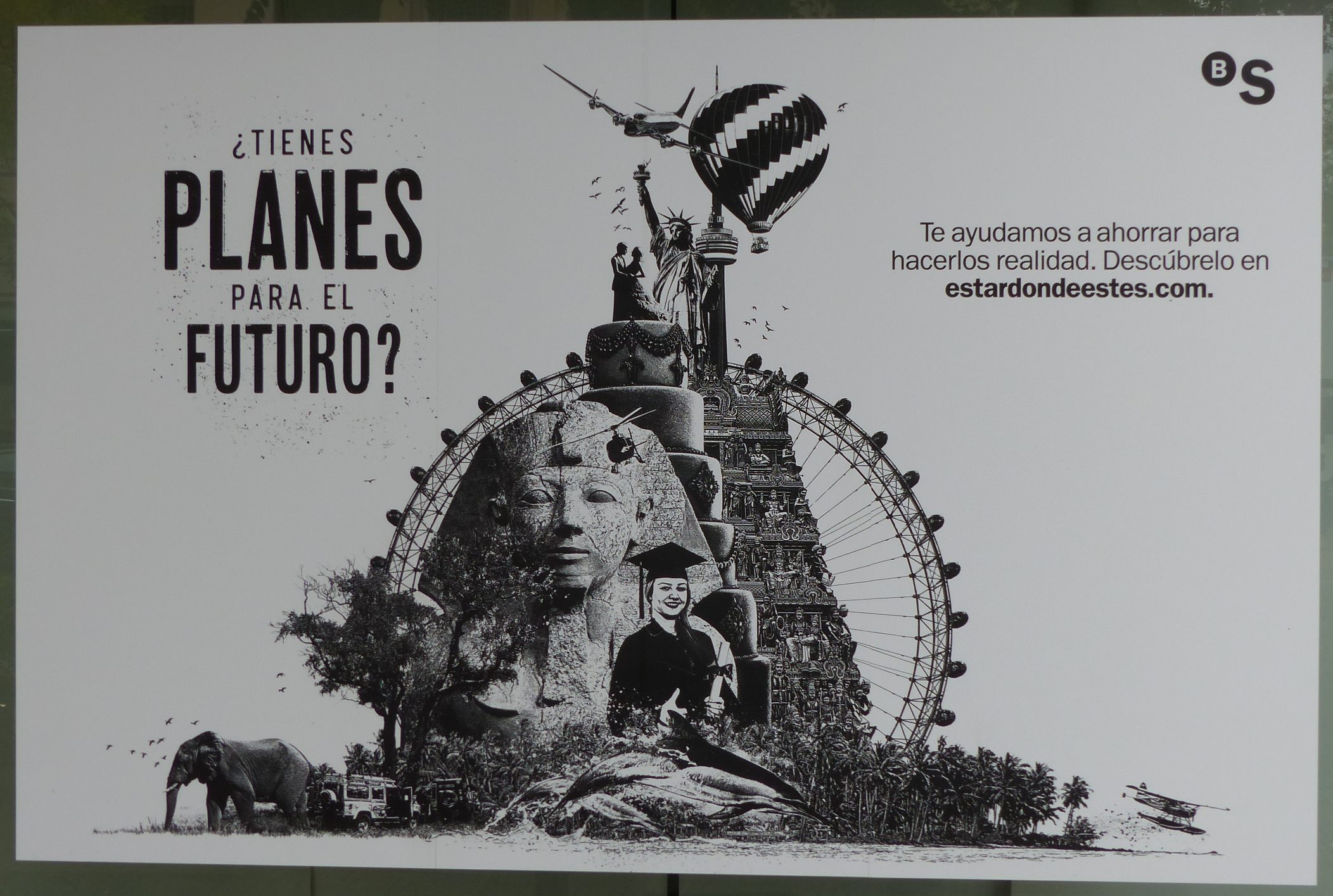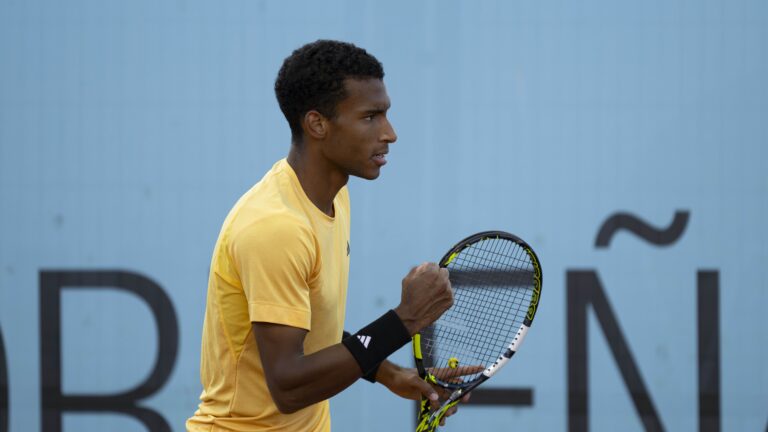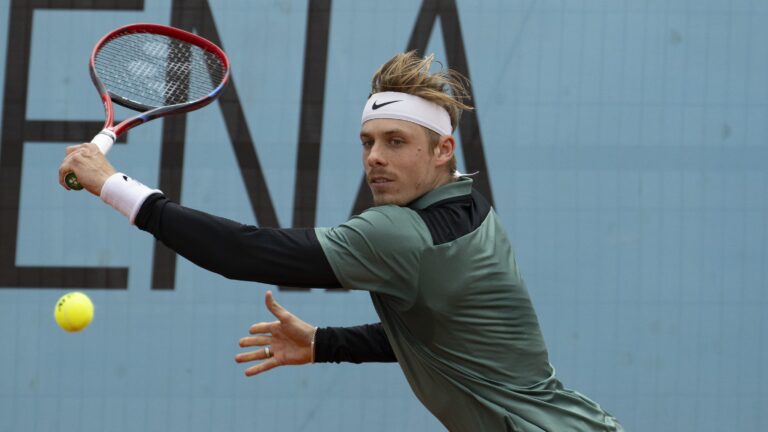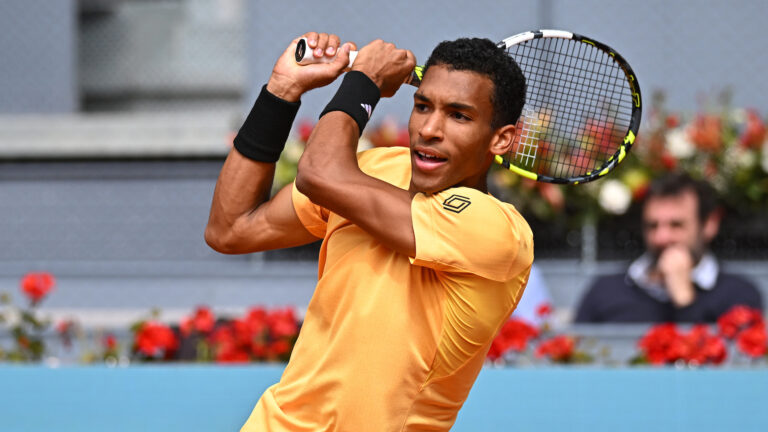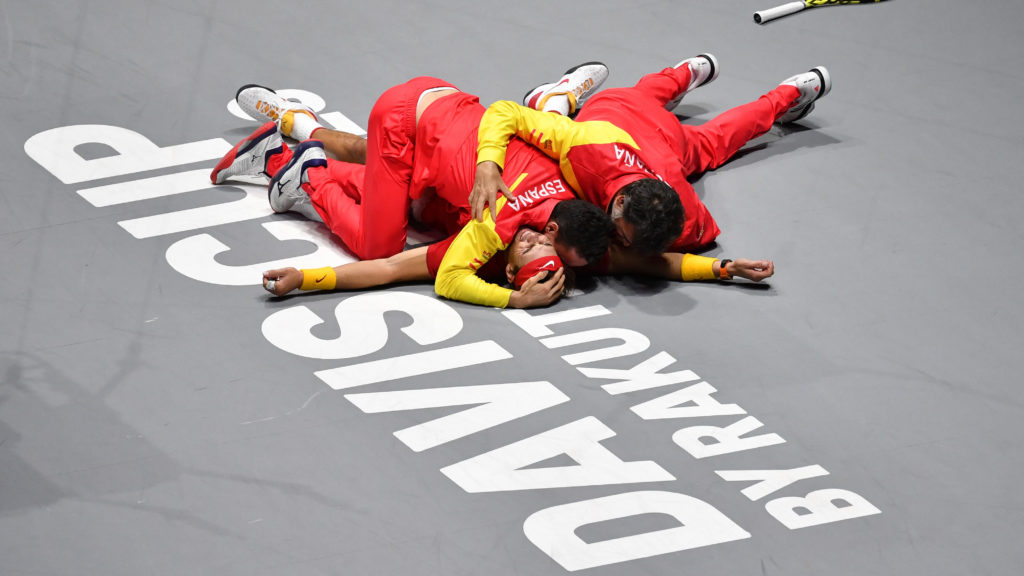
|||Photo: Martin Sidorjak||||
Playing at home with supreme motivation, Rafael Nadal and Roberto Bautista Agut had singles wins over Denis Shapovalov and Félix Auger-Aliassme on Sunday in Madrid to give Spain its sixth Davis Cup title.
World No. 1 Nadal is always a man possessed on the tennis court, especially ‘en casa,’ while the No. 9-ranked Bautista Agut was playing with an other-worldly drive after his father Joaquin died last Tuesday after enduring several years of ill health.
Bautista Agut, who returned to the team on Saturday from his home in Castellon de la Plana, defeated Auger-Aliassime 7-6(3), 6-3 before Nadal survived a mighty challenge from Shapovalov to clinch the tie 2-0 with a 6-3, 7-6(7) victory.
There was an outpouring of pent-up emotion right after Nadal (lifting Bautista Agut above) defeated Shapovalov in a riveting tiebreak that featured the Canadian saving two match points – the first with a breath-taking running forehand passing shot that nearly brought the house down, and the second with a serve and forehand winner. But two points later he was mortal again – missing a forehand into the net to give Spain the win and Nadal a personal fifth career Davis Cup triumph.
At the presentation ceremony, his teammates let Bautista Agut be the first player to hold the Davis Cup and as a team insisted that he was the actual hero of the tie – after losing an opening round singles on Tuesday to Andrey Rublev of Russia and then beating Auger-Aliassime on Sunday.
Bautista Agut spoke tearfully to the 12,000-plus crowd in the Caja Magica on court after the match and later said that his father would have “pulled him by the ears” if he had not returned to play in the Final.
Bautista Agut’s story is a sad one, his mother Ester passed away in May, 2018. But there is a positive in his life – he is about to get married. Many tennis fans will recall that he had to cancel his bachelor party when he unexpectedly reached the Wimbledon semi-finals back in July.
There’s another irony with the 31-year-old Spaniard, he was involved in a highly-emotional match back in January at the Australian Open when he defeated Andy Murray 6-4, 6-4, 6-7(5), 6-7(4), 6-2 in an opening round match after an over-wrought Murray had been suggesting that persistent hip pain might well force him to retire from the sport.
Auger-Aliassime, substituting for Vasek Pospisil, was aware that Bautista Agut could be in Sunday’s singles, taking the place or either Feliciano Lopez or Pablo Carreno Busta.
“We heard about it yesterday (Saturday) that he could potentially play if they made the final,” Auger-Aliassime said, “so I was preparing to face him. Obviously it makes things more difficult. He’s a top-10, a great player playing at home. He played well. For my part it’s disappointing to end on a note like this after all the work that Vasek and Denis had put in but we’ll learn and come back.”
Bautista Agut was just a bit too consistent for Auger-Aliassime. The Montrealer has the weapons to dominate the Spaniard off the ground and with his serve but he struggled with his return game – losing the first 13 points on the Spaniard’s serve. If he could have made inroads earlier – as he did in the eighth game when he stretched it to two deuces – it might have changed the competitive balance of the match. As it was, Bautista Agut settled in and got into a metronomic groove that made things difficult for Auger-Aliassime.
Still Auger-Aliassime had a chance to win the opening set tiebreak as it went on serve at 4-3 for the Spaniard. But two unforced errors on his serve points gave Bautista Agut a 6-3 lead and he then proceeded to wrap it up to complete a run of five points in a row.
“He was getting more and more solid, he was hitting targets,” Auger-Aliassime said about Bautista Agut. “I think he was hitting targets the whole match.”
The stats tell a story – Bautista Agut’s winners to unforced errors ratio was 6/19 while Auger-Aliassime was 22/45. Break points converted were 1/4 for Auger-Aliassime and 2/5 for Bautista Agut.
“I did everything to try and bring a point (for the team) but I couldn’t,” Auger-Aliassime said. “(It’s) so disappointing but at the same time, I’m going to take that experience and move forward with it.”
When asked about his decision to replace Pospisil with Auger-Aliassime in the match-up of the respective teams’ No. 2 players, captain Frank Dancevic simply replied, “it was my decision, obviously to make the substitution. I’d rather not go into details with it. It was my call in the end to do the substitution today and I’ll leave it at that.”
As for Pospisil, he said, “I found out late last (Saturday) night. Of course it’s tough – everyone wants to play. It was double tough that we lost it today. At the end of the day we have a full team capable of playing high-level tennis. It’s a team effort, it’s a team decision so to speak, and you just have to be ready to do your part.”
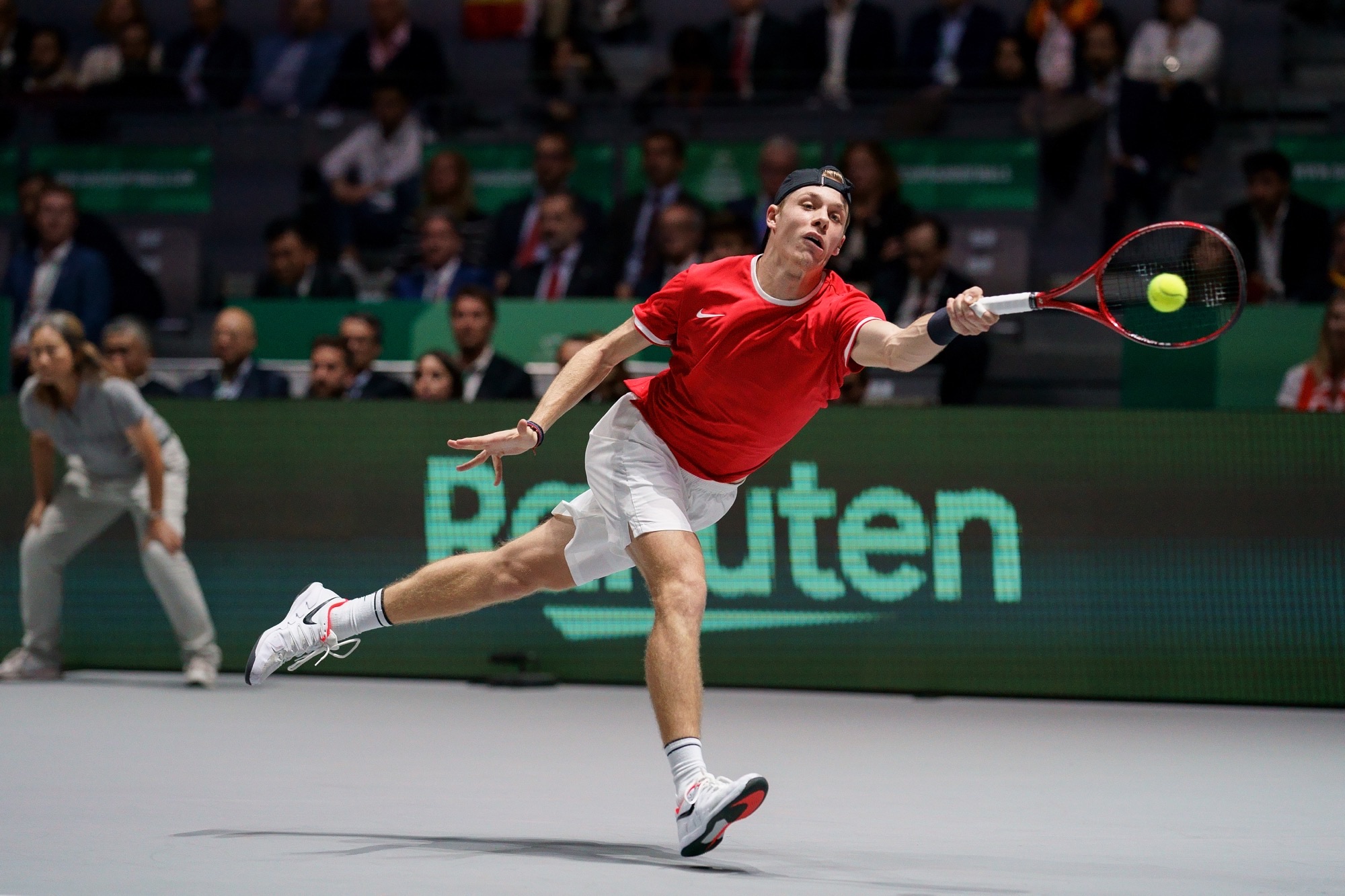
The Nadal – Shapovalov encounter matched two of the most dynamic players in the game – both lefthanders – and it didn’t disappoint as they exchanged the tennis equivalent of boxing body blows for an hour and 50 minutes. Nadal broke serve to 4-2 in the opening set and then wrapped it up in 36 minutes.
The second set was much more of a battle as Shapovalov found his range and went toe-to-toe with the 33-year-old Spanish great in scintillating rallies with both players probing and maneuvering with their heavy ground strokes, looking for an opening to deliver the coup de grace.
“I think he played a really good match today,” Shapovalov said about Nadal. “He served really well in the first set and it was tough to get into a rhythm off his serve. In the second I felt like honestly I was the better player most of the games. We had a lot of long games and I was in most of his serve games. He did a good job of staying in it and he played really good in the tiebreak. He recovered well mentally after having two match points and me coming back. It was difficult but it was a fun atmosphere. It’s pretty special to be playing in an occasion like this – against World No. 1 and he’s playing at home. Of course it sucks to lose but it’s just a learning experience.”
“Denis is special,” Nadal said afterward. “He has a lot of things that you can’t practice, you need to… you have it or you don’t have it. And he has it.
“I’m very happy because I played against one of the toughest opponents possible. And after a very, very long and tough week for me physically and mentally because the energy that I tried to put in every single moment of the whole event have been all the things what I have inside me. And it’s a perfect season for all of us.”
It wasn’t quite as perfect for the Canadians but it was an exceptional week nonetheless. While the Canadian team failed to win a first Davis Cup for the country, it did defeat the two teams that have the most Davis Cup titles – the United States (32) in a second round-robin tie and Australia (28) in the quarter-finals.
“I think the week as a whole and everything we’ve done – the car rides from and to the hotel, the dinners, everything we’ve done as a team – has been amazing,” Shapovalov said. “For me it’s one of those weeks that I’m going to look back and really have a good feeling about it – one of those really fun weeks in my tennis career.”
The elder statesman at 29, Pospisil, added, “these guys (Auger-Aliassime and Shapovalov) will definitely win this competition one day. And hopefully I can be part of that at some point in the next few years. The kind of quality of tennis these two play is pretty amazing to watch.”
“For me the way I perceive (a Davis Cup Final) is Grand Slams and then Olympics and then Davis Cup Final – it’s all in the same thing. It’s pretty amazing to be part of it.”
The Canadian players were compensated with a total of $2 million (US) in prize money while the Spanish team received $3.2 million. The other benefit is that Canada is now guaranteed a spot in next year’s second edition of the Davis Cup Final – some advertising signage in Madrid referred to it as “el mundial de tenis” – without having to play the qualifying round next March.
In the end Nadal and his mates playing in Spain were too much to overcome for the 20-year-old Shapovalov, ranked No. 15, and the 19-year-old Auger-Aliassime ranked No. 21.
It had to be intimidating for Shapovalov during the on-court warm-up before the match to hear the p.a. announcer call out all of the Grand Slam titles Nadal has won – especially when he did the complete 12 Roland Garros titles roll call year by year – letting the crowd cheer and clap for each and every one of them individually.
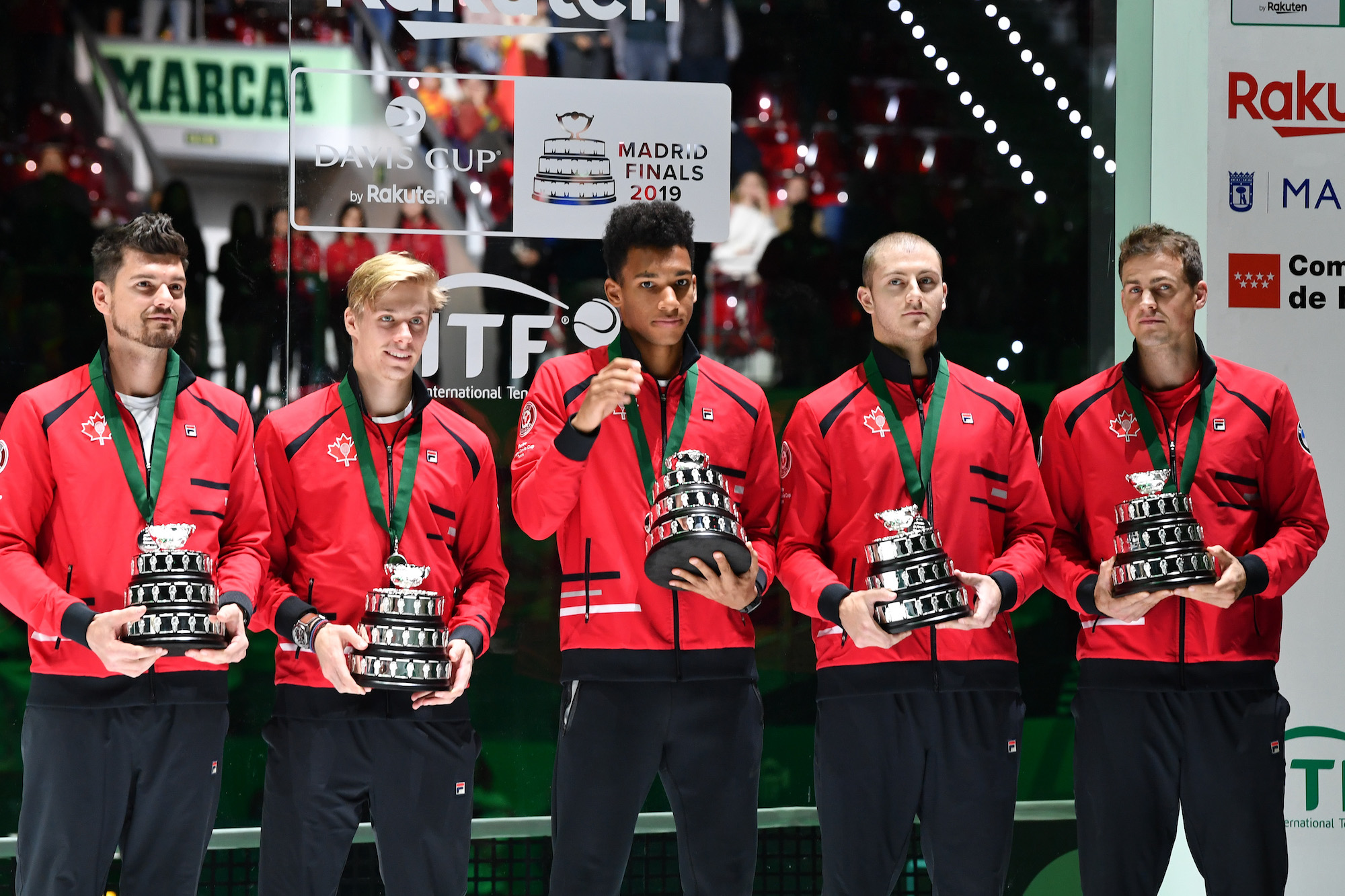
“The Canadian team is amazing,” Nadal said. “They are amazing today and probably they’re going to be one of the teams that’s going to be almost unbeatable in the next couple of years. They have a very strong team in more ways and in all surfaces.”
In the end the Davis Cup Final 2019 was essentially the ‘Rafa show’ in Madrid, but he didn’t want to make it about a one player – although he was 5-0 in singles and 3-0 in doubles for the week.
“We know how difficult it is to win this trophy and we know how difficult it going to be to keep winning in the future,” he said. “And we knew that we need to convert this opportunity, no? And we fight very hard. And what Roberto did today is out of this planet, in my opinion so…”
If anyone should recognize “out of this planet” in tennis, it has to be the modest 33-year-old from Mallorca.
MADRID POST CARD
This poster is outside a Banco Sabadell branch in central Madrid. It reads “Do you have plans for the future?” A close look at it reveals an Egyptian pharaoh, the Statue of Liberty and – in the very back – the CN Tower in Toronto. Who’d have thunk it?
Feature Photo: Martin Sidorjak
